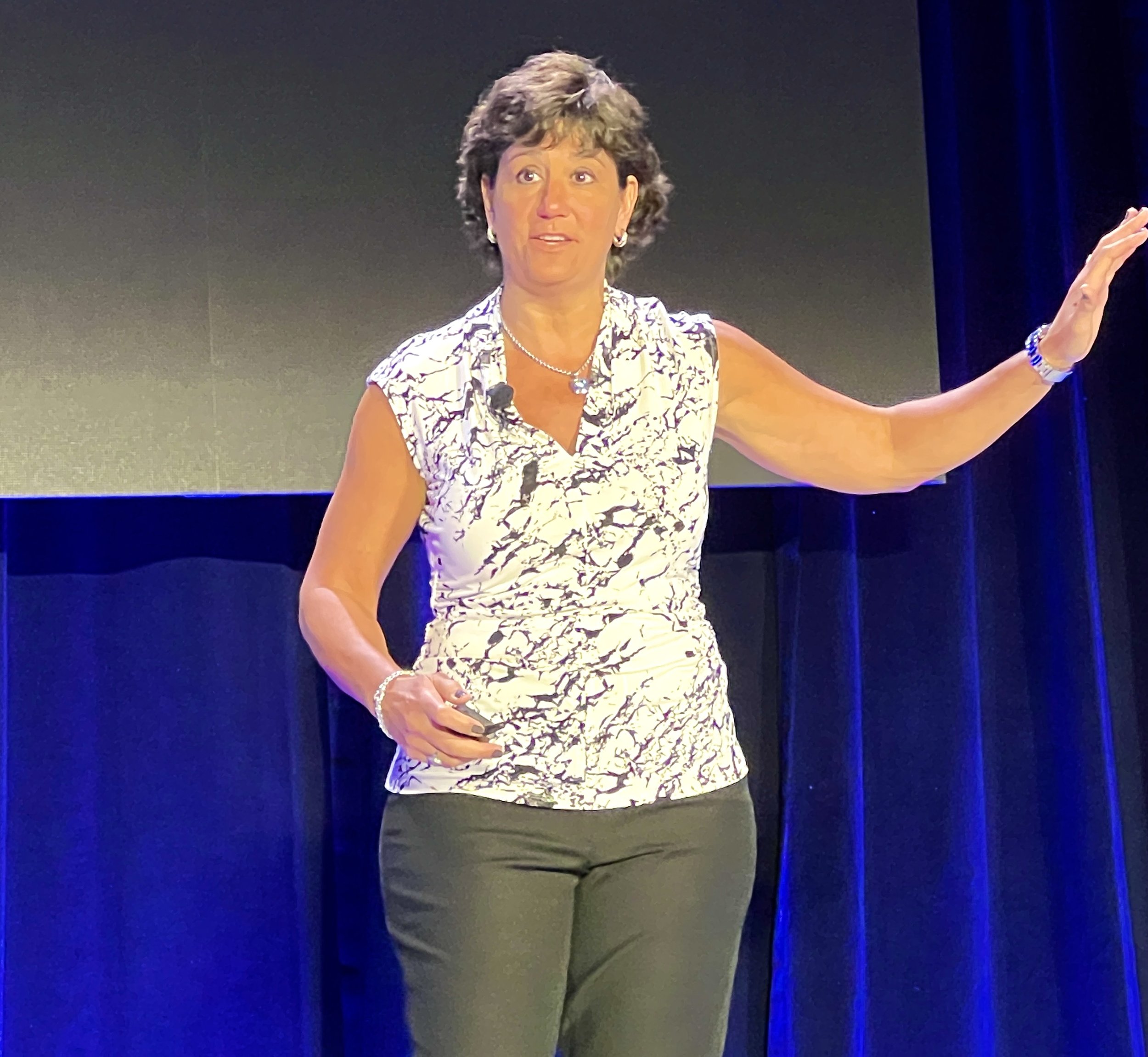The event kicked off with the first address by Deb Conklin in her role as KeHE Distributors’ new President & CEO. She was introduced by Brandon Barnholt (photo above), the longtime CEO and Naturally Chicago co-founder, who stepped up to the role of Executive Chairman on the Board of Directors in April.
Conklin, who holds a degree from Clemson University in industrial engineering and a Master of Business Administration from Queens University of Charlotte, previously served as a KeHE board member while working for the nation’s largest manufacturer and distributor of packaged ice as CEO of the Reddy Ice Company. The following are takeaways from her engaging and informative talk.
● “One of the reasons why this discussion is so imperative for us is if we're not taking a step back from our crazy day-to-day life, and we're not thinking about what might be next, we will be late to the party. The funny part is even the pundits can agree on what's next. Some say we're going to be in a deep recession, some say we're already in recession, some say that the Fed won't raise the rates anymore, they'll start dropping it, we will have a very soft landing, and we will hit the ground running. So, who knows what's right?”
● “If we just start with the economy, the most powerful word, which is a scary word, is inflation. We have seen in the very recent past the fastest, deepest inflation seen in 40 years… What we experienced was demand was greater than supply, and that happened for a plethora of reasons. You can start with that, as COVID hit, all the money that was pumped into the economy and into consumers’ pockets. And oh, by the way, they had nowhere to go and nothing to do with it. And then, all of a sudden, the desire or need for new and more things started to happen… The other thing that's really been interesting is the trickle-down effect as you go further and further and further into the supply chain. The shortages that get created… And then when you try to hire somebody to go do work, there are not enough people around.”
● “What we see in the grocery industry is [shoppers] still come to the store with $100, but they just buy fewer items because that $100 doesn't go as far as it used to…. It felt like one week I paid one thing for eggs. And the next week, it was like 20% more. The pace of change was really something like we had never seen.”
● “The thing that stands out to me is that the capital markets are really tight. We're going to see more of this. But just like every other kind of inflationary period, tightening of monetary policy, as reflected by interest rates, we got into a little bit of a lull. And the deals that are getting done are the highly strategic, highly transformational deals, they are not private equity-type deals… And so the big question, and lots of people have different opinions on this, is that come Q3, late Q3, and Q4 of this year, change will begin for a couple of reasons. There is a ton of capacity to do deals, and there is going to be a point at which people are going to begin to do deals… I think the interesting thing here is we are all properly positioned because we play in this natural specialty market. If you look at the trajectory over the last four or five years, this segment continues to grow.”
● “When you talk about that supply chain, it truly is normalizing. I don't know about you, but I remember the days of going into the grocery store, and there were more holes on the shelf than there was food. I remember all of the decisions I was forced to make where I wanted Product X but I had to go to Product Y or in some cases meal plan completely differently. Right now, you go into the grocery store and the shelves are busting at the seams. There are tons of products available. There are tons of capacity in the market. There are tons of capacity all the way through the supply chain.”


